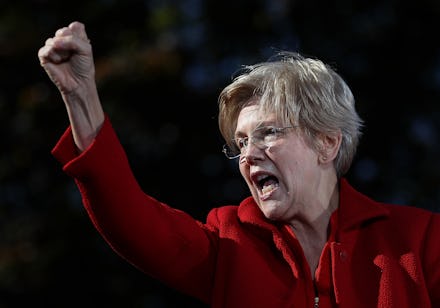Republicans are trying to make single-payer a 2018 campaign issue. Here’s why that might backfire.

Republicans have a new strategy to attack vulnerable Democrats in 2018 — tie them to their party’s growing embrace of single-payer health care.
A new Facebook ad campaign from the National Republican Senatorial Committee, the party’s main campaign organization for Senate elections, targets 10 Democrats in states that Trump won in 2016 on the issue of single-payer health care.
“Elizabeth Warren thinks Obamacare doesn’t go far enough,” reads one ad, before flashing a quote from the Massachusetts senator that declares, “The next step is single-payer.”
The ad then shows a picture of Senator Bill Nelson (D-Fla.) who is up for reelection in 2018 and asks “Does Senator Nelson agree?” before going on to point out that Nelson votes with Warren 90% of the time.
The ads are a brazen attempt to go on the offense in a health care debate where Republicans have struggled to defend their own such plan.
There’s just one problem: Single-payer health is becoming increasingly popular among Americans.
A recent Pew Research Center Poll found that 33% of Americans support a single payer system. That’s up 5% from January of this year, when the debate over a Republican health care bill was just beginning, and up 12% from 2014.
By comparison, the latest version of the Republican health care plan released by the Senate has just 12% support according to a USA Today/Suffolk University poll. That same survey found that only 26% of Republicans support their party’s bill.
And support for single payer increases when Democrats have a chance to reframe the issue. A recent Economist/YouGov poll found that 60% of Americans favor single-payer health care when it is described as “expanding Medicare to provide health insurance to every American.”
Many progressive leaders in the Senate have taken to using just that kind of language. Vermont Senator Bernie Sanders recently vowed to introduce a “Medicare for all” bill in Congress this year.
And adding to Republicans’ challenge is the fact that current Republican president, Donald Trump, is on the record voicing his support for a single-payer health care system multiple times both before and after his foray into politics.
If Republicans embrace a strategy of defending their own health care bill by bringing up the Left’s increasingly popular, they might be in trouble.